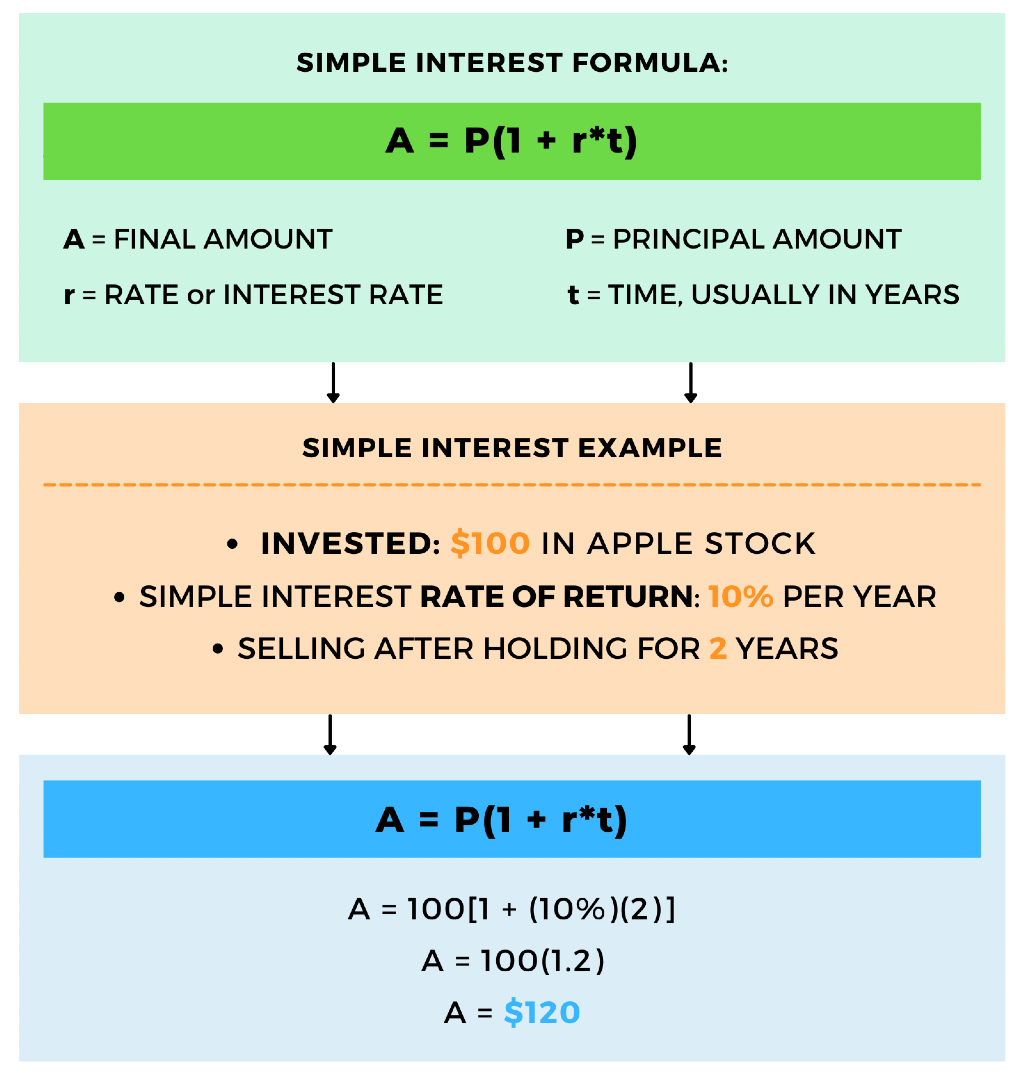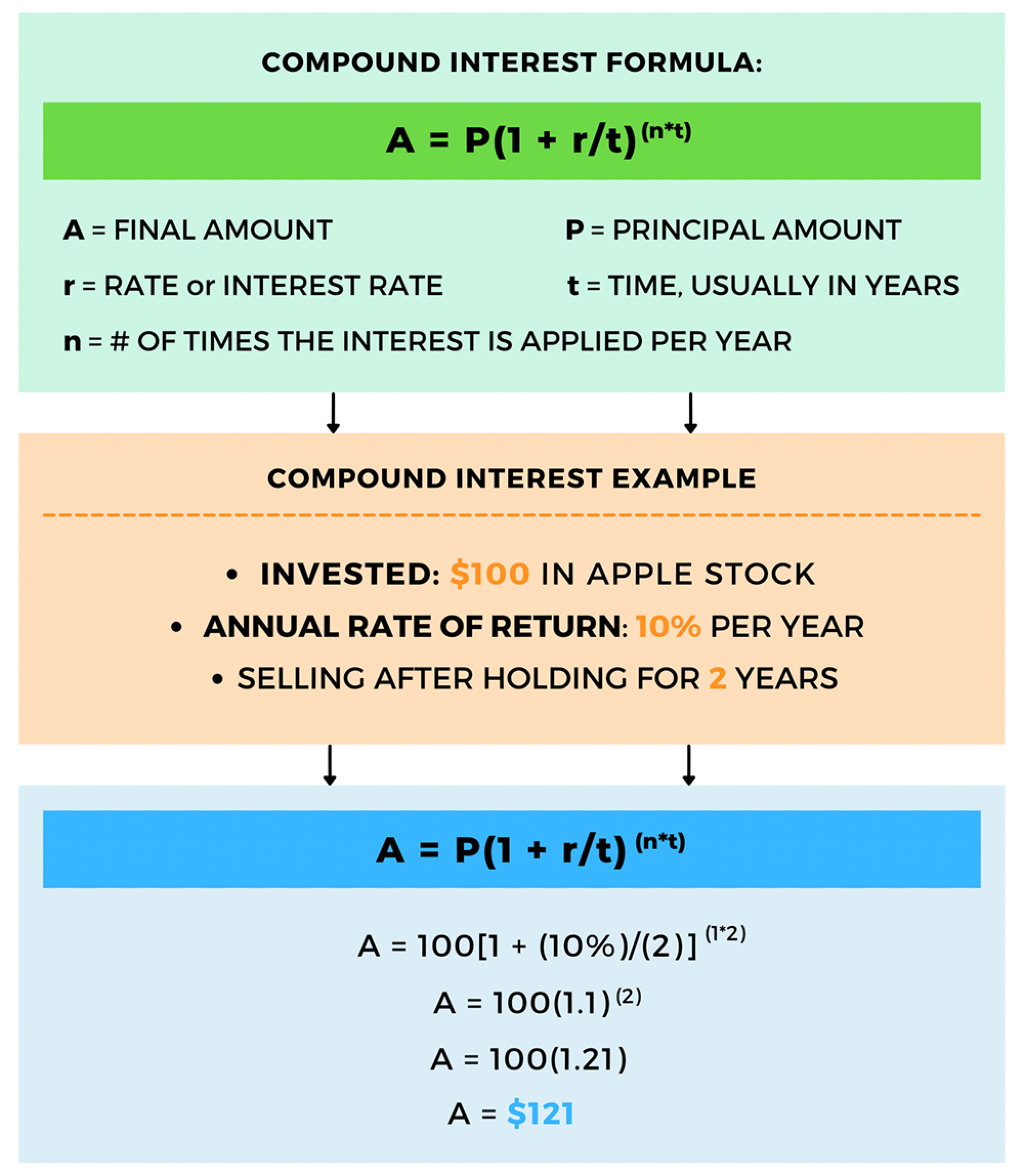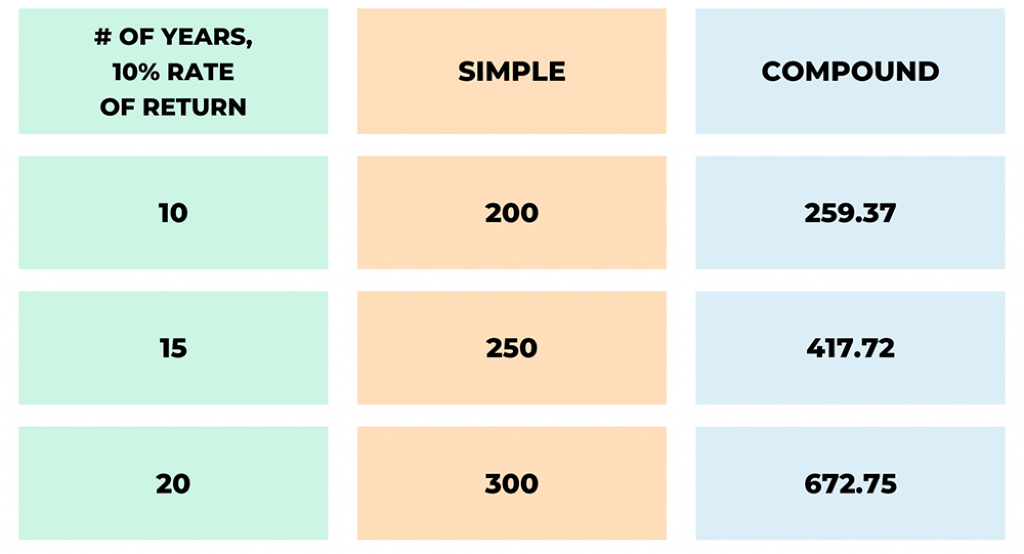Compound Interest | Definition
/ˈkämˌpound ˈint(ə)rəst/Compound interest is when you earn interest on both the money you have saved and the interest you have earned from previous periods.
Next word Commingling Funds | Definition ᐳ
As the famous scientist Albert Einstein once said, “Compound interest is the eighth wonder of the world. He who understands it earns it. He who doesn't pays it.”
Compound interest is a financial tool that has proved to be highly beneficial to investors as it allows them to grow their money consistently throughout the years. There are many benefits of utilizing compound interest. On the other hand, compound interest can hurt your personal finance journey if you are the one paying it.
For example, if you borrowed money and had interest charged, your debt may be continuously compounding. Keep reading to learn more about the power of compounding and how it works.
What is Compounding Interest?
Simply put, compound interest is the money you make from your previously earned interest. You can earn interest from keeping it in an investment or savings account with a financial institution.
Lenders can also charge an annual percentage rate from the money you have borrowed. Compound interest takes the interest made from your money, adds it to the overall amount, and grows the new amount by charging or paying an annual percentage rate based on the new amount. This cycle repeats until the balance is taken out of the account or if the balance is paid off.
For example, some banks offer interest on savings accounts. Let’s say you have $1,000 in your savings account with an interest rate of 1% and annual compounding. If you leave the $1,000 in that account in one year, you will have $1,010.
If you do not take any money out of that account the following year, you will have $1,020.10. The extra 10 cents come from the compounding interest. So the following year, you will have $1030.30, and so on.

On the other hand, if you have $1,000 in credit card debt and an APR of 25%, after one year of making zero monthly payments, your balance will grow to $1,250. If your bill is not paid that year, your balance will continue to grow, and the following year you will owe $1,562.50. The higher the annual percentage rate and total bill, the more money compounded during each compounding period. Let’s look at the compound interest formula below.
What is the Difference Between Simple and Compound Interest?
Simple interest means the additional money earned is only applicable to the original amount invested, also known as the principal amount.
For example, suppose you invested $100 in Apple. For hypothetical purposes, let’s assume that the simple rate of return will be 10% per year and you are selling after holding it for two years. This example shows if an investor holds the stock for two years, only a $20 profit would be made because simple interest is only concerned with the principal amount invested.

On the other hand, compound interest focuses on both the principal and money earned. Using the same numbers as the previous example, we can see how compound interest is calculated.

In two years, with the same level of return, compound interest was only able to generate $1 more than simple interest. However, compound interest will significantly increase your wealth when you are thinking long-term. In the graphic below, look at the numbers 10,15, 20 years in the future. Then, using a simple and compound rate calculator, look at the difference in growth compound interest can cause using the same numbers as before:

Compound interest can increase your money exponentially over long periods. So now that you understand how compounding works, let’s use it effectively.
How to Use Compounding Interest Effectively
The best way to receive the most money through compound interest is to invest as early as possible. There are different ways of investing your money, all of which provide different annual returns.
Stock Market: Mutual Funds
Mutual funds are a low-risk method to investing in the stock market, bonds, or both. A mutual fund is a diversified portfolio that includes more than just a single stock. According to The Balance, on average, in 2020, the rate of return when investing through mutual funds was about 10%.
Stock Market: Exchange-Traded Funds (ETFs)
ETFs track the performance of a bundle of stocks and are usually known for being one of the safer, passive investments. For example, one popular ETF, the SPDR S&P 500 ETF Trust (SPY), has generated an average annual return of 13.55%, according to Investopedia.
Stock Market: Index Funds
Index fund investing is very similar to investing in mutual funds. The main difference is that a mutual fund aims to outperform the stock market. On the other hand, index funds strive to maintain the same return as the stock market.
Make Your Money Work For You and Not Against You
Compounding interest is powerful and can either work for you or against you. If you have an outstanding debt that is exponentially growing due to the compounding annual percentage rate, try to pay it off as soon as possible.
Recommended Read: Pay Off Debt Using the Snowball Method
Conversely, putting your money into accounts that will pay you high-interest rates will help make your money work for you. Use investment or high yield savings accounts to put your hard-earned dollars to work. The sooner you begin using compounding to your advantage, the more time you will have to enjoy the benefits.

Image Credit: Shutterstock
Robert Kiyosaki, the author of Rich Dad, Poor Dad, explains passive investing by sharing, “Rich people have their money work for them. Poor people work hard for their money.”
This quote means that instead of focusing on working many hours in a week to obtain money, invest your money wisely in opportunities that will periodically pay you. This way, you are working the same hours as before, but your money provides you with more money, helping you obtain financial freedom.
Start Investing Early
More Time in the Market
When investing earlier in life, you can stay in the market for a prolonged period of time and allow your money to grow. The beauty of compound interest is the longer you let your money sit in investments, the more it will grow over time. This process allows you to have a large sum of money when you retire, allowing you to do whatever you wish without worrying about the amount of money you have.
Compounding interest is a powerful tool that can help create generational wealth when used effectively. Using it to your advantage, such as investing in the stock market, can help you achieve long-term financial freedom. Investing frequently and early on will allow you to enjoy the benefits of compounding interest and earn passive income in your sleep.